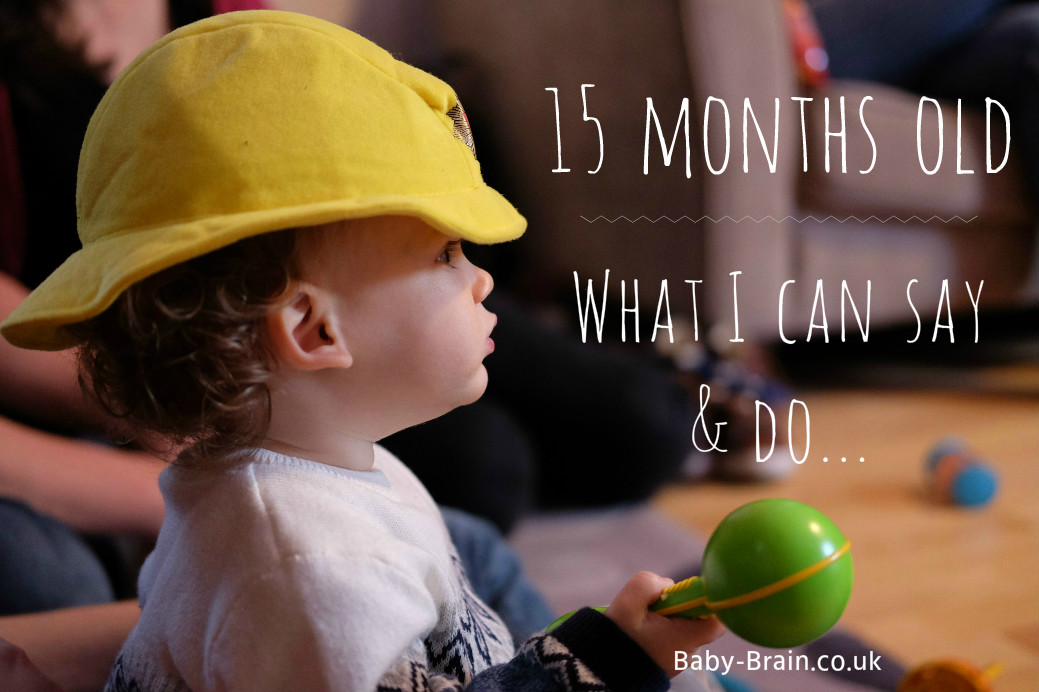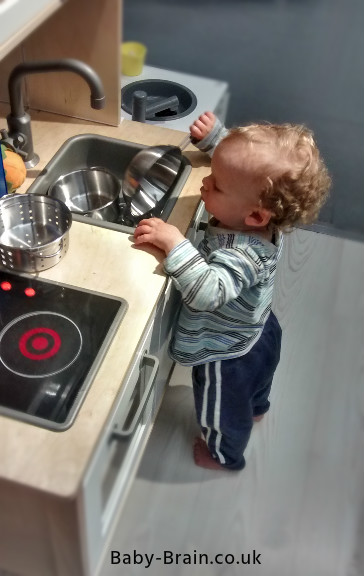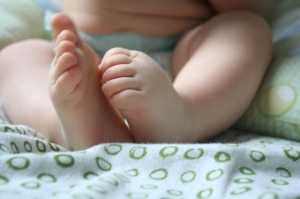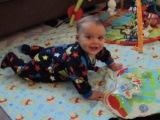…

Look at my cool yellow hat
The baby (or is it toddler now?) is 15 months! He’s been talking more and is now walking fully – when I say fully, i mean he’s walking everywhere and not resorting to any crawling. However, his walking is still a bit robotic and jerky, cowboy-esque.
Here’s some words I’ve noticed he can say, appropriately and in context, although not all of them are clear:
-
thank you (clear; one of his first words)
-
daddy (very clear)
-
pea (very clear; he likes peas)
-
sock(s) (clear)
-
banana (but not very clearly)
-
attempts to say “open” but not clear at all
-
down (clear; put me down – is confusing up and down though, mainly just says “down” for wanting both to be picked up and put down)
-
sit down (clear; he likes to sit on the sofa)
-
wow (very clear)
-
wee wee (very clear; and will go sit on the potty – has probably been influenced by his brother’s potty training, also see here and here for more on potty training)
-
poo (clear)
-
apple (clear; one of his first words)
-
Sarah duck (kind of clear; a kid’s cartoon he and his brother like to watch about a girl called Sarah and her friend, a duck)
-
ball (not very clear)
-
twinkle twinkle (and can sing more of the song including up above the world so high, not very clear)
-
round (kind of clear – relates to wheels on the bus song)
Next development step with talking: putting two words together!! (not including wee wee)…




